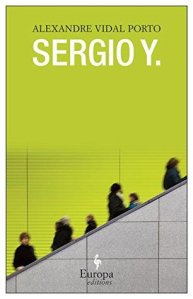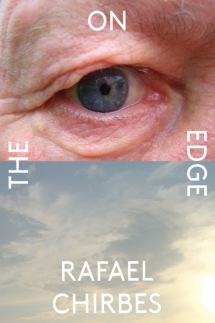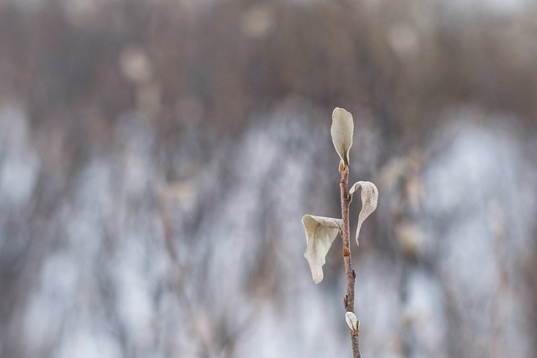Winter solstice. The longest night of the year.
Moving forward, the days grow steadily longer and, in less than two weeks, we will leave a dark, disturbing year behind us.
But it would be reckless to imagine that 2017 will be brighter. However, with luck, we can be forewarned, forearmed, and determined not to relax our guard. We can stand together against the rising tides of hatred, and remember what is truly at stake.
Since I started this blog two and a half years ago, winter solstice has become my annual check-in point. Last December, I reflected on the key elements of a year that began with a move to writing seriously about books and culminated with my first review for Numéro Cinq. Against that trajectory, I wrote about my trip to South Africa, and the pulmonary embolism and cardiac arrest that followed within a few weeks of my return. I imagined that the eventful year I had experienced would not likely, for better or worse, be exceeded this year.
Cue 2016.
This has been a year of heartache, anger, and dismay. Around the world and close to home. I watched the violence in Syria, the outcome of the Brexit vote, and the spectacle of the American election, among the other tragic and unexpected events that have unfolded. And as economic uncertainty and anxiety has grown in my own hometown—a city that lives and dies with the price of oil—the crime and homicide rate has risen sharply this year. It does not feel like the same community any more.
Then there is the lengthy roll call of the writers, artists, and performers who have left us. But to be honest, I cannot say that I have felt these losses as acutely as many others… I’ve been distracted by the immediate, personal losses that marked this year. My mother, my father, and one of my closest friends, all gone within the span of two months. And my grief—that most fundamental human emotion—is complicated, inarticulate, and wearing.
It will take time.
But, 2016 has also been a time of amazing growth and opportunity for me as a writer. I don’t know how often I resolved, with the dawn of a new year that: This year I will write. Last December, with that first critical review under my belt, I could not have imagined that I would have, in addition to regular contributions to Numéro Cinq, published reviews at 3:AM, Minor Literature[s], The Quarterly Conversation, and The Rusty Toque. And I would not have dared to dream that I would see my essays and prose pieces published on line and in print, or that I would be invited to join the editorial team of The Scofield. As 2017 approaches, I have a handful of reviews scheduled and several prose projects underway. I’m also feeling inspired to return to photography after a lengthy hiatus, and to see how I can incorporate photos into my written work.
I have much to look forward to, in spite of, or rather, against the new darkness that threatens.
Art and literature are more important than ever at times like this.
So, this seems to be an appropriate time to look back over this year’s reading, and highlight the books that stand out for me.
I’ve read about 50 books to date, a little more than half of what I read in 2015. I don’t even want to hazard a guess as to how many books I bought, received as review copies, or brought home from the library. I feel, as usual, like I fell short of my intentions. However, I have to remember that I was writing, working on critical reviews, and dealing with considerable life stresses over the past twelve months.
More than ever before, I read like a writer this year. That is, I was especially attuned to voice, structure and approach to storytelling. Consequently, the books that made my year-end list tend to reflect this focus. Of course, any “best-of list” leaves out many excellent books. I’ve managed a baker’s dozen here, and it’s probably a reflection of the increased number of off-blog reviews I wrote that this year’s list is predominately composed of new releases. I was surprised to see that once I’d made my selection.
In reverse chronological order, my top reads of 2016 include the following:
Story of Love in Solitude by Roger Lewinter (France), translated by Rachel Careau
I will write about this collection of three short stories once I have completed The Attraction of Things. My verdict is still out on that title, but this tiny book is simply wonderful.
The Inevitable Gift Shop by Will Eaves (UK)
Fragmentary, cross genre writing that works fascinates me. Billed as a “memoir by other means”, it is Eaves’ unique tone that makes this blend of memoir, literary criticism, and poetry so compelling. His thoughtful reflections on reading and writing made this an ideal meditation to turn to after a year of reading critically and exploring my own literary voice.
 The Absolute Gravedigger by Vítěslav Nezval (Czech Republic), translated by Stephan Delbos & Tereza Novická)
The Absolute Gravedigger by Vítěslav Nezval (Czech Republic), translated by Stephan Delbos & Tereza Novická)
I have found myself turning to poetry more and more as the world seems increasingly unstable and, well, surreal. This newly translated collection of poetry by one of the best known Czech Surrealists should be essential reading at this time. Originally published in 1937, the darkness he could see on the horizon are all too familiar once again.
The Country Road by Regina Ullmann (Swiss), translated by Kurt Beals
I read this collection of short stories when I was in a very low mood. But in the spare, sombre prose of these tales I found a beauty that, rather than deepening my depression, brought strange comfort. Admired, in her lifetime, by the likes of Rilke, Mann, and Musil, Ullmann’s work is mostly forgotten today. This volume, released in English translation in 2015, is a rare treasure—one that I encountered at just the right moment.
 Panorama by Dušan Šarotar (Slovenia), translated by Rawley Grau
Panorama by Dušan Šarotar (Slovenia), translated by Rawley Grau
For me, as a reader and a writer, one of the most important books I read this year is this literary meditation on migration, language, landscape, and loss. This novel finally broke through my own stubborn determination to hold to a sharp delineation between fiction and nonfiction, and has made me re-evaluate potential approaches to themes I wish to examine. What Šarotar achieves here with his own unique take on what might be deemed a “Sebaldian” approach, is the creation of an atmospheric, captivating, and intelligent work.
The Passion According to G.H. by Clarice Lispector (Brazil), translated by Idra Novey
Oh wow! In a way, I am glad I didn’t read Lispector before writing and publishing my essay “Your Body Will Betray You,” because she is exploring the process of coming into being so beautifully that I might not have been able to write at all after reading this. Employing an unconventional narrative, Lispector’s G.H. experiences a vivid, metaphysical crisis triggered by the sight of a cockroach. The result is a remarkable, thoroughly engaging read. I have at least three more of her books waiting for the new year.
Proxies by Brian Blanchfield (US)
I bought a number of essay collections this year and currently have several on the go. This collection impressed me not only for the way the essays were composed—written without consulting outside sources—but for some of the ideas explored, and for reinforcing the value and possibilities of the personal essay/memoir form. I also greatly appreciated his guiding caveat: Permitting Shame, Error and Guilt, Myself the Single Source.
 Sergio Y. by Alexandre Vidal Porto (Brazil), translated by Alex Ladd
Sergio Y. by Alexandre Vidal Porto (Brazil), translated by Alex Ladd
This book is significant and important for dealing with gender identity and transition in a sensitive and original way. I am, as a transgender person, critical of much of what passes as literary writing on this subject. This is a most impressive work with a startling and unique approach. As I noted in my review, Sergio Y. is novel that approaches the transgender experience from the inside and the outside, allowing for the comfort with names and pronouns to vary, over time and from person to person, reflecting the complexities of relationships that others, even loving family members, can have when an accepted and assumed identity is challenged. That is the book’s greatest strength.
 The Surrender by Scott Esposito (US)
The Surrender by Scott Esposito (US)
This book was on my radar from the moment I first heard of it. Again, despite my typical gender related skepticism, I was drawn to this transgender-themed memoir/film critique/literary diary. I wanted to know how Scott would present his story—one that is not commonly heard. Although his journey is very different than mine, we share a certain sensibility. This is a brave and most wonderful book by a man who has long been one of my heroes. He has since become one of the many literary friends I have come to know and cherish this year.
Atlas of an Anxious Man by Christoph Ransmayr (Austria), translated by Simon Pare
This book was a total surprise when it arrived courtesy of the good people at Seagull Books. This most unusual travelogue, a series of brief “encounters” across the globe, contains some of the most stunning descriptive language I have ever read. Each episode begins with the words “I saw…” and ends with a wise, evocative observation. From the North Pole, to South America, from deep inside the mountains of New Zealand, to a parking lot in San Diego, this is a journey that will not be easily forgotten. Highly recommended.
Quiet Creature on the Corner by João Gilberto Noll (Brazil), translated by Adam Morris
My third Brazilian book on this list is this enigmatic novella that led to one of the most entertaining literary discussions of the year. What is it about? Well that is the challenge. I had to read it three times before I could begin to get a handle on it. The narrator, a young man who finds himself in a strange situation that is rapidly growing stranger, is, in his oddly passive tone, almost more disturbing than whatever might be happening. Opaque and surreal, this book gets under your skin.
The Crocodiles by Youssef Rakha (Egypt), translated by Robin Moger
This novel still holds fast in my memory although I read it back in February. It is, as I described it in my review, a prose poem of simmering power, unwinding across 405 numbered paragraphs, tracing a torturous path from the first stirrings of poetic assurance within a trio of young men in the 1990s to the doomed protests of the Arab Spring. It is a dark, intense exploration of youthful political idealism, that builds on repeated images, themes and refrains to create a compelling narrative force as it moves toward its stunning conclusion. Again, this is another work that is increasingly relevant in today’s world.
 On the Edge by Rafael Chirbes (Spain), translated by Margaret Jull Costa
On the Edge by Rafael Chirbes (Spain), translated by Margaret Jull Costa
Finally, the very first book I read in 2016 is probably my favourite book of the year. I wrote about this novel at length for Numéro Cinq and I regret that it has not generated more discussion. In what is essentially an extended monologue with brief cameos from other characters, Chirbes creates a memorable, engaging, and tragic character in seventy-year-old Esteban, a man who has lost absolutely everything in the economic collapse of 2008. Thoroughly human in his wisdom, his resolve, his shortcomings, and his despair; this is a powerful and important book that deals frankly with many of the critical issues—including migration, xenophobia, and economic decline—that are more vital than ever as we step into 2017.




I read some of these reviews not knowing about your personal circumstances and so I must say that I admire your courage in keeping going when everything was falling to pieces around you.
I hope that the new year brings solace…
LikeLiked by 1 person
The more I have been writing and publishing, my new mantra when things go wrong is: “There’s an essay in this.” But I would like a calmer year! 🙂
LikeLike
I have always found that writing is balm for the soul, even if it’s just writing my private thoughts in a journal. Something to do with processing the chaotic into something more coherent, and making a narrative out of trauma. I did a course once to help me when I was teaching refugee children suffering trauma, and was told that telling, writing or drawing a narrative out of what troubles you, can often reset the brain so that memories shift from uncontrollable sensate memory which can be triggered by all kinds of things, conscious or otherwise, to memories that the brain can invite or dismiss at will. It doesn’t work for everyone, but it works for me.
LikeLiked by 1 person
Great list indeed, although I have read not a lot, your summaries bringing these books to life. I have read “On The Edge” & wrongfully chose not to review it. Given the depth & approach I actually struggled with what to write – however a great selection, one I believe will be on the BTBA lists & maybe then get the coverage it deserves. May 2017 be a huge improvement for you Joe, take care.
LikeLiked by 1 person
Thanks for the good wishes Tony. “On the Edge” was my second NC review, and the one I am most proud of. I loved writing about it, but I’ll admit that the section about Chirbes in the “Acorn” anthology from Open Letter, gave me the angle to from which to read and analyze it (Chirbes warns that the author is trying to make you look in the direction he wants and as a reader you must guard against that). I sure hope it makes the BTBA list.
LikeLiked by 1 person
It’s been a joy to read your reviews here and elsewhere during the year, Joe. Your end of year list is idiosyncratic and all the more interesting for it. Somehow I missed those Will Eaves’ reviews, and it sounds like his CB Editions books would be my sort of thing. I’ve (nearly) always declined invitations to write outside of my blog, making an exception this year for Seagull Books and The Scofield. You inspire me to push myself further. Thanks, Anthony.
LikeLiked by 1 person
A fascinating list of books, Joe. You definitely have had a heavy couple of years and I hope the new year will bring healing and help you move forward. Look forward to reading you in 2017.
LikeLike
A great list of books, Joe. I have also enjoyed reading your pieces in other literary magazines! I look forward to see what you write in 2017. Here’s to hoping that 2017 is brighter for all of us.
LikeLike
It’s been a pleasure reading you this year.
LikeLiked by 1 person
Thank you, Victoria.
LikeLike
I’m sorry to hear you’ve had such a sad year, but it sounds like your creative life has stepped up a gear, which is a wonderful thing. I’ve much enjoyed following your blog and reading your always thoughtful and considered posts. I love that you share so many wonderfully diverse books here, ones that would not normally cross my radar, and I thank you for that. Seasons greetings and here’s hoping 2017 is a peaceful and productive one for you.
LikeLiked by 1 person
I accidentally trashed this comment… luckily I managed to get it back… I’ve never done that before! Thanks for your good wishes, Kim. It has been quite the year, for the best and the worst. You’ve had a successful year with your reading Australian project it seems. Are you planning to do a wrap post about the experience? I think that would be most interesting. Wishing you the best of the season, and lets all hope 2017 is peaceful for all of us!
LikeLike
Lol. Glad you managed to rescue it! And yes, I plan on doing a wrap up post… I’ve had an amazing reading year (and an up and down personal year, having lost two jobs but then found my dream one) and discovered some amazing new-to-me writers and a handful of “old reliables”. I don’t think I made much of a dent in my TBR though, as I bought a few books and acquired many review copies from publicists. Oh well.
LikeLiked by 1 person
A very full year for you. I hope the good balanced the bad and helped ease your grief. As always, it has been a pleasure reading you. Here’s to the return of the light. May 2017 bring your peace and joy.
LikeLiked by 1 person
Thanks Stefanie. All the best to you and your brood! I did love watching the Dashwoods playing with their purple cabbage piñata. Our cats, Earl Grey and Georgia, have a little treat coming this evening…
LikeLiked by 1 person